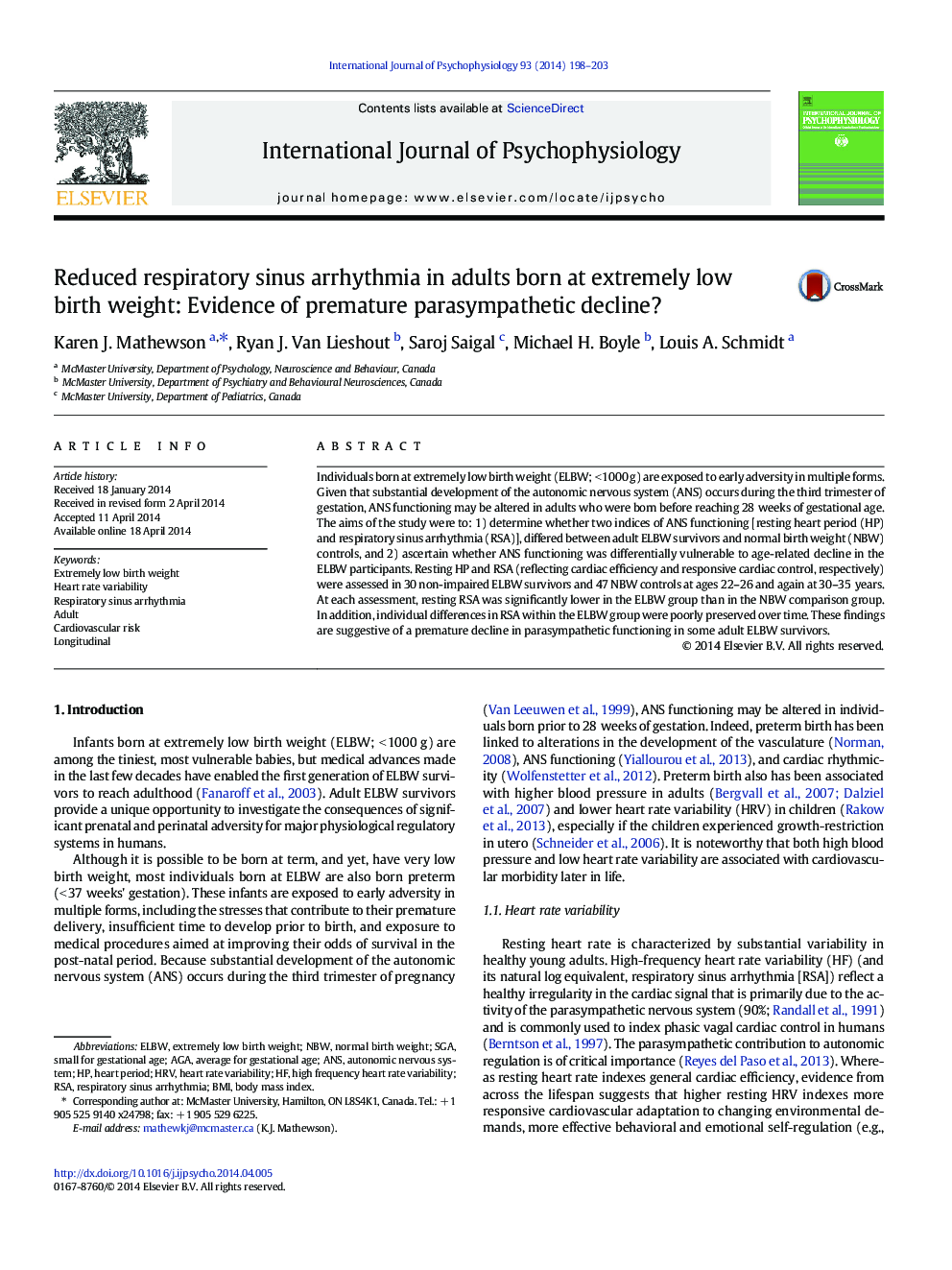| Article ID | Journal | Published Year | Pages | File Type |
|---|---|---|---|---|
| 929608 | International Journal of Psychophysiology | 2014 | 6 Pages |
•Autonomic function may be altered in adults born before 28 weeks' gestational age.•We compared autonomic function in 30 adults born extremely preterm and 47 controls.•Mean resting vagal control was lower in preterm adults, at ages 22 − 26 and 30–35.•Individual differences in vagal control were not stable over time in preterm adults.•Vagal control may decline prematurely in some survivors of extremely preterm birth.
Individuals born at extremely low birth weight (ELBW; < 1000 g) are exposed to early adversity in multiple forms. Given that substantial development of the autonomic nervous system (ANS) occurs during the third trimester of gestation, ANS functioning may be altered in adults who were born before reaching 28 weeks of gestational age. The aims of the study were to: 1) determine whether two indices of ANS functioning [resting heart period (HP) and respiratory sinus arrhythmia (RSA)], differed between adult ELBW survivors and normal birth weight (NBW) controls, and 2) ascertain whether ANS functioning was differentially vulnerable to age-related decline in the ELBW participants. Resting HP and RSA (reflecting cardiac efficiency and responsive cardiac control, respectively) were assessed in 30 non-impaired ELBW survivors and 47 NBW controls at ages 22–26 and again at 30–35 years. At each assessment, resting RSA was significantly lower in the ELBW group than in the NBW comparison group. In addition, individual differences in RSA within the ELBW group were poorly preserved over time. These findings are suggestive of a premature decline in parasympathetic functioning in some adult ELBW survivors.
